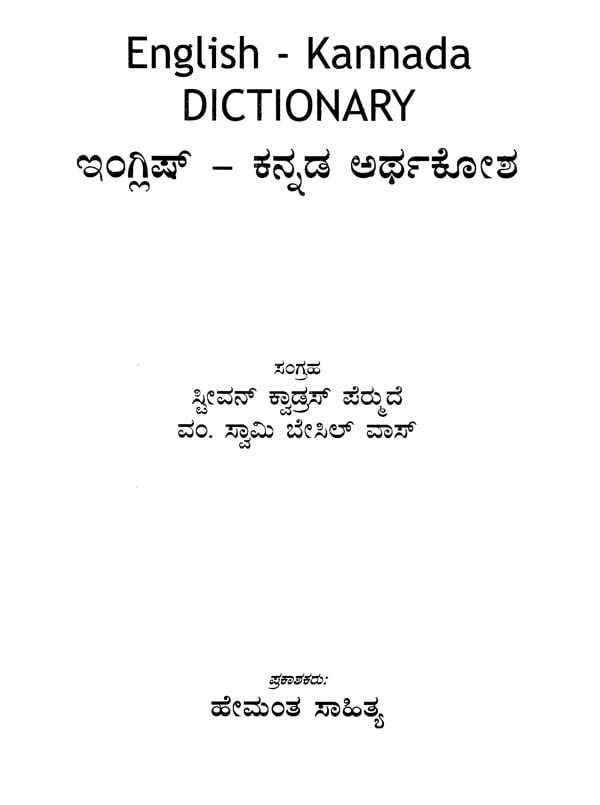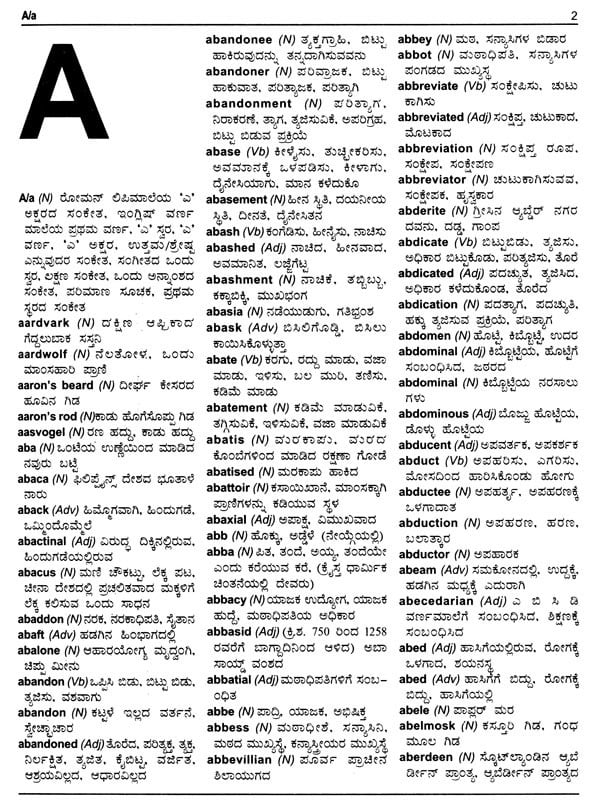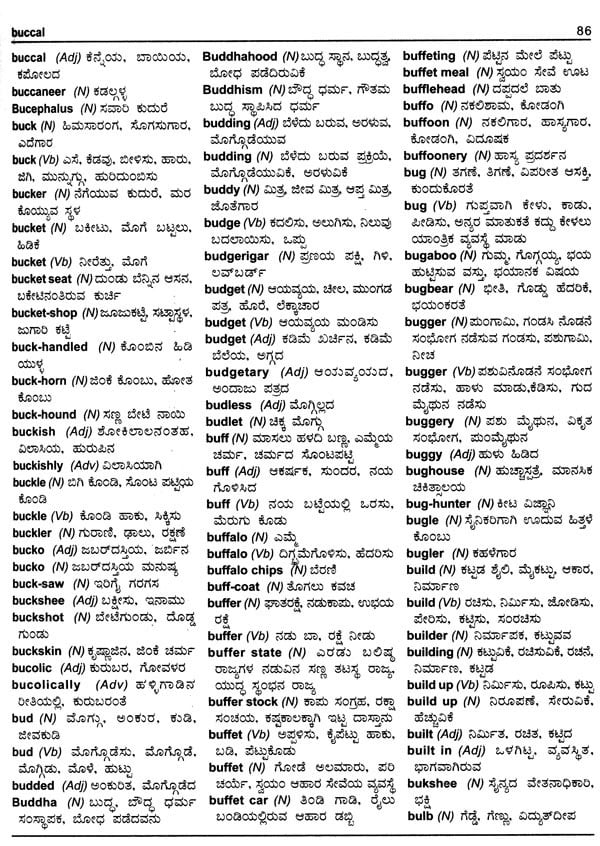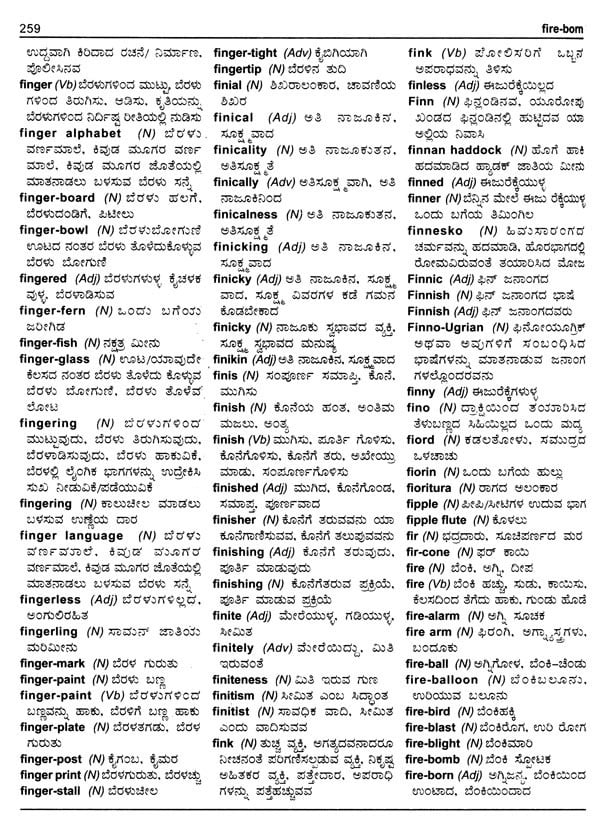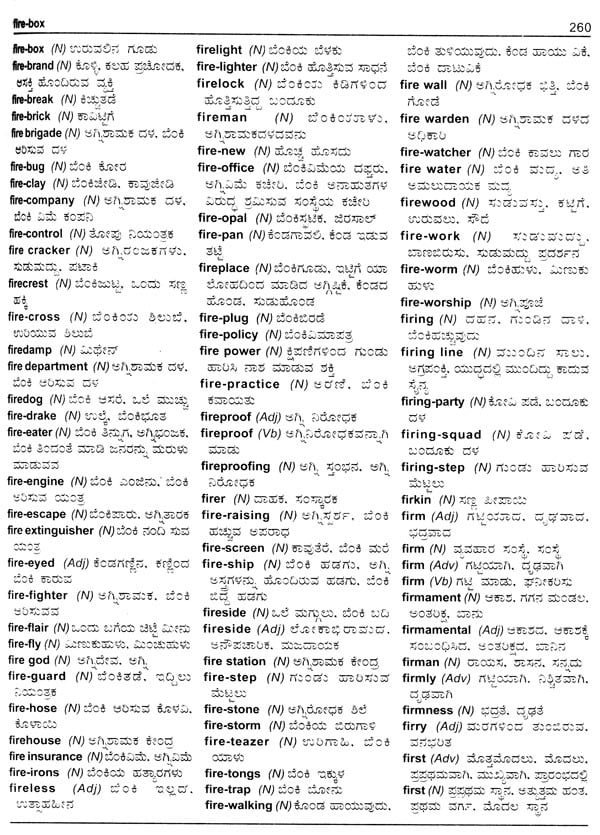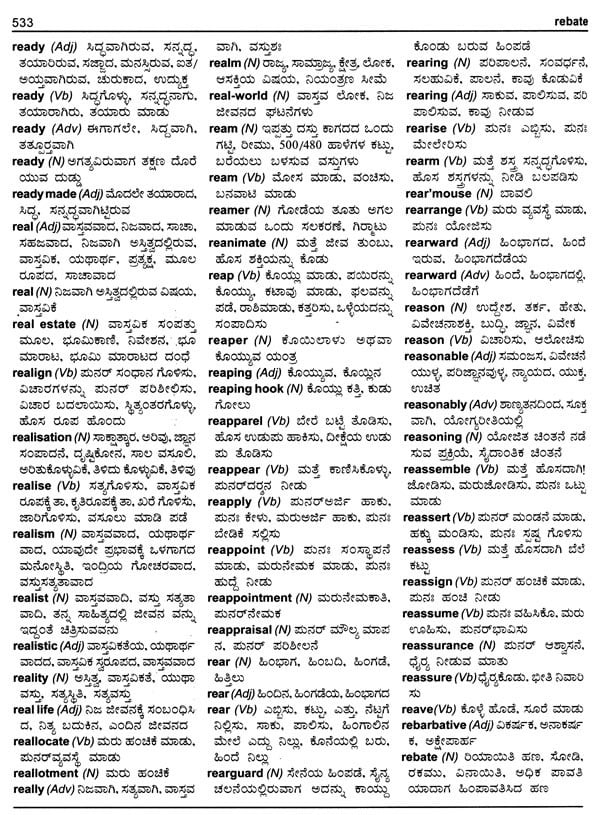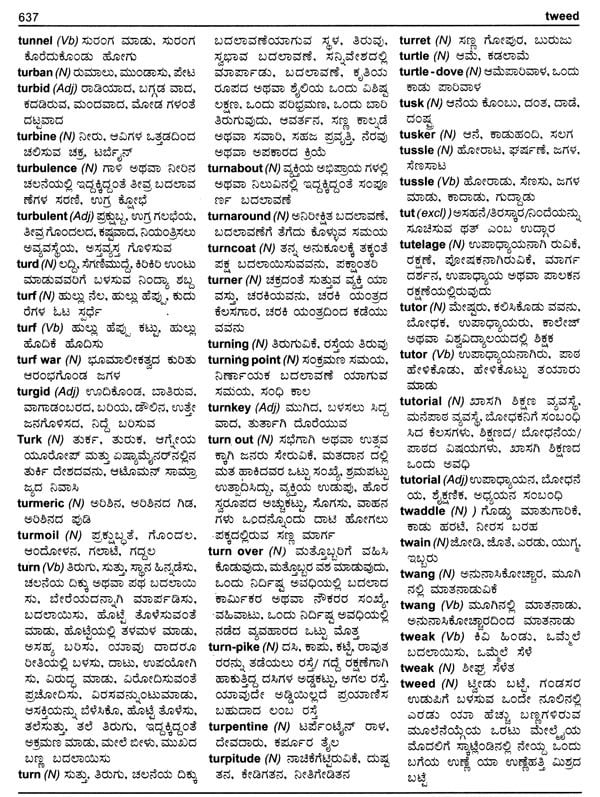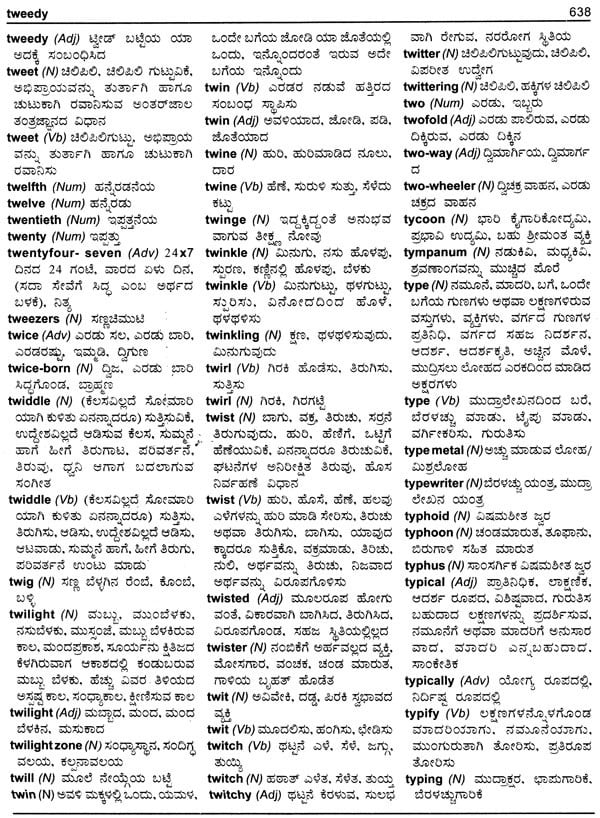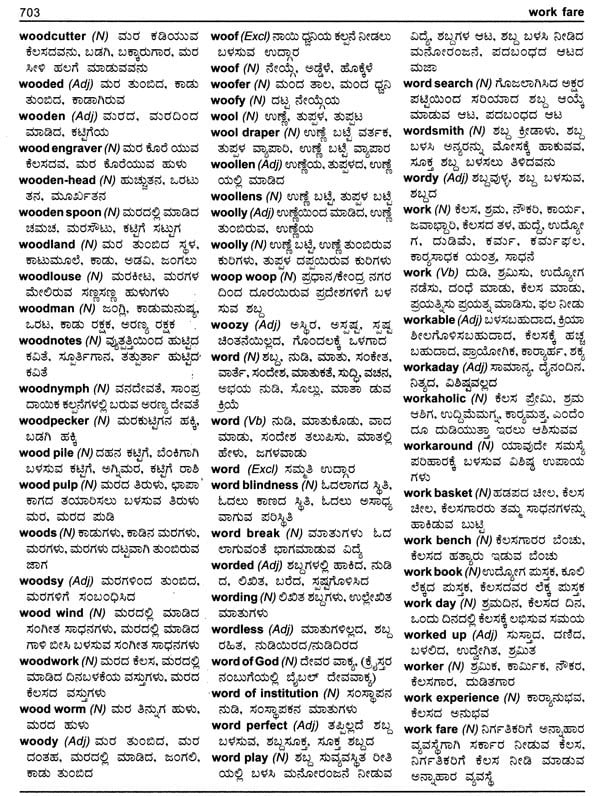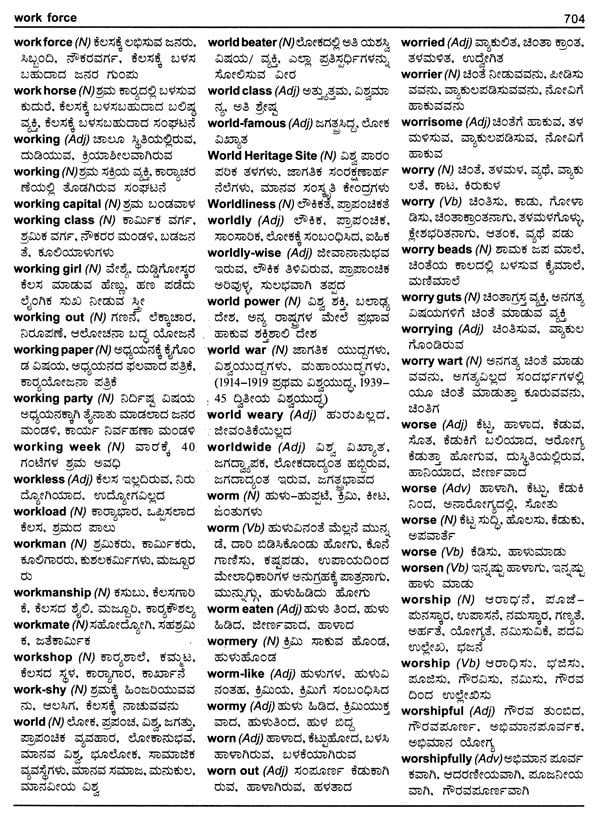
English-Kannada Dictionary
Book Specification
| Item Code: | UAB972 |
| Author: | Stephen Quadros Permude and Rev. Fr Basil Vas |
| Publisher: | Hemantha Sahitya, Bangalore |
| Language: | English and Kannada |
| Edition: | 2016 |
| Pages: | 720 |
| Cover: | HARDCOVER |
| Other Details | 10.00X7.50 inch Depth |
| Weight | 1.31 kg |
Book Description
Has authored more than 70 text books of History for various classes. Translated Vachana Literature and other prominent Kannada Works into Konkani and has authored many works on Language, Literature and Culture. Member of various State and Central Government committees for Konkani Literature and Education.
Presently serving as Prist at Alangar, Moundbird. Renowned Preacher and Counselor. Has obtained B. The from Urban University Rome. M. A. Socialogy-Osman University. Organized many literary conferences and events. Underwent special courses on' Special Direction and Discernment' As Asst Di- rector Mangala Jyothi, was involved in .the production of many literary works. Served all people at Panja, Pakshikere and Bela concentrating on ecumenism and won the hearts of people, recognized as people’s priest and revered even by people of all other communities.
It is obvious that a continual process of lexicographical endeavor and culture is necessary for the evolution and growth of a language. History tells us that it is through these dictionaries that a vibrant and dynamic communication in language happens. Every language has its own character and this; unique character is acquired and constantly enhanced through the constant production and use of the dictionaries of that language. In this sense, every user of the language becomes a crucial' element in constructing and producing the word power of the language.
The success of any dictionary depends entirely on its UTILITY or use value to its consumers. Hence, any lexicographic project must take its commercial viability as its non negotiable mosaic. The standardization of language is a continual process and therefore, it constantly redefines and reinvents itself by evolving, acquiring, infusing, accepting, modifying, including new forms of expressions. Every effort in expanding and modifying expression makes the language richer and more inclusive and opens in its approach. Shall we say, every lexicographic endeavor like this makes the language get out of the exclusivity, closeness, bondage of the known and evolves into a freer, open, dynamic, user friendly and inviting to others?
A responsible lexicographer attempts to enrich his/her creative work constantly. In this exercise, the already published and available dictionaries come in extremely handy for him as points of reference. Preparing a comparative lexicon needs a broad spectrum of works, regional and other foreign languages, for global acceptability. These efforts ultimately result in expanding the accessibility and popularity of the language. Times have changed and today, lexicographical endeavors cannot restrict their focus on the! local language communities but cater to the multiple linguistic needs of the global users of the language. Therefore many writers in this field conduct surveys and pre-tests' or experiments in different parts of the world where the target language community is spread.
It is commonplace to hear cynical comments like, ''There is no copyright for words" and "What research can be possible on words?" If we take for example the English word " Monarch" it generally means 'king', 'people's leader', 'protector of people', but if we take alternative references from other dictionaries, we also find other shades of meaning 'one who lives on the tax paid by people' too. A sensible and comprehensive lexicographic attempt must acknowledge and document this sense also with due referencing. This depends entirely on the compile vision and attitude regarding their work.
Most of the dictionaries that we come across generally have a similar format. One of the predominant documentations is the Head Entry system where the structure of the word, gent primary meaning, other meanings and various forms of the word are presented in sequence. Is it amazing to note that the traditional and ancient dictionaries can be reworked and enriched even today? I'm sure a dictionary with a word- followed by its general meaning- oral (spoken form gender- its gender word form- number- primary meaning- alternative meanings- other meaning in various contexts- opposite word- an illustration of its usage in a sentence in its prima meaning, would be a worthwhile endeavor in the right direction.
Kannada, the Dravidian language predominantly used in South India, has been lucky enough to have many lexicographers working in it. Rev. Ferdinand Kit tells produced first Kannada- English Dictionary. Prominent institutes and the individuals have thence produced many important dictionaries in Kannada. Stephen Quartos came out with the pioneering English Konkani Dictionary in Kannada scrip in 2007. More than 25000 English words have been given their Konkani equivalents in to dictionary. Running into 1009 pages, this voluminous dictionary provides more than five equivalent words to each English word, and hence has become almost a household name among the Konkani world. Many editions of this dictionary have been published but there has not bell keenness among linguists as well as publishers to update and reinvent the work. In the year 2010, we, under the banner of Patha Darshini Seva Trust, embarked on this me! project of this dictionary with a noble view that this endeavor would ultimately help the empowering work that the Trust has been carrying out consistently for the past many years. Just the members engaged in this noble work- Stephen Quartos, Anil Johnson Coelho, Rev. Fr Sa Vas and Always D'Souza, Permude instantly gelled with this idea and supported it. This me! project would not have been possible without the collaboration, goodwill and, most of all, their commitment and love for the language. Book's Contents and Sample Pages 